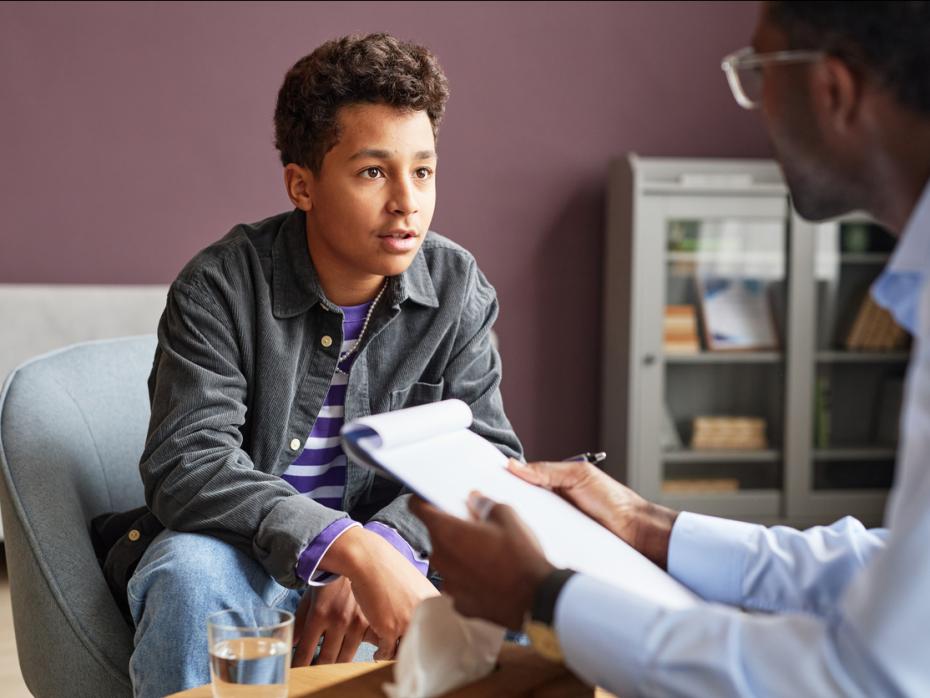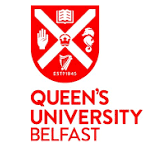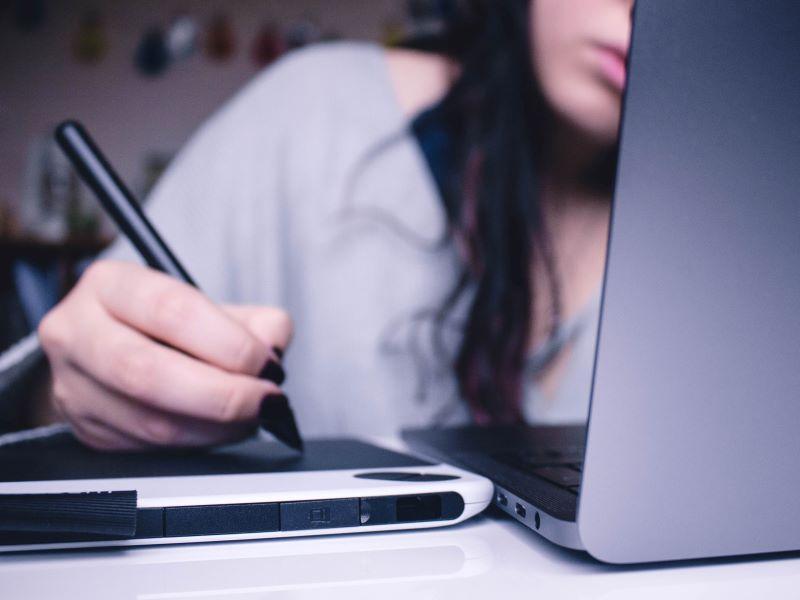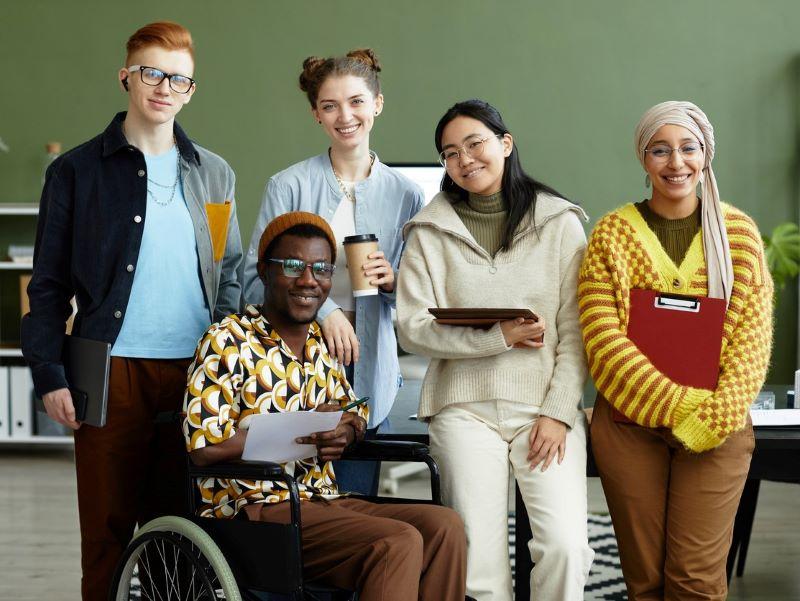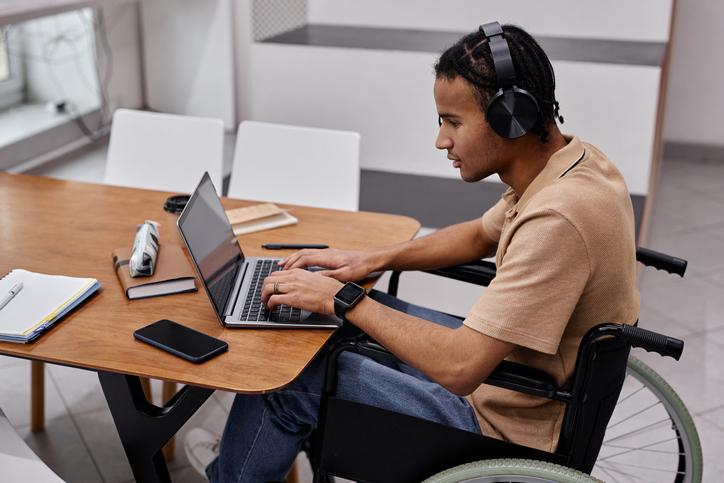
How we support accessible learning for students with disabilities
You may also like
Accessible learning support and student well-being are priorities for many institutions. At Queen’s University Belfast, a team of highly trained disability and well-being advisors offers support to students at any stage in safe, confidential, non-judgemental spaces.
Recently, in response to student and staff feedback, the university rebranded “disability services” to “accessible learning support” to make support services more inclusive and encourage students who may have previously hesitated to seek support.
Our accessible learning support service ensures students with a disability or long-term condition, including those with mental health conditions or a working diagnosis, are supported to succeed throughout their studies. All our support services are free and open to all students at all levels. This resource outlines some of the strategies we use to support our students.
People
Teams work collaboratively across departments to promote equality, diversity and inclusion. Our accessible learning staff collaborate with careers and employability staff to develop focused resources and prepare students with disabilities for future employment. This has included working with specialist organisations to offer drop-in and group sessions to help neurodivergent students plan their careers.
A coordinator supports students to use our campus-wide assistive technologies, and collaboration between accessible learning and well-being team staff ensures students facing challenges are signposted to relevant support pathways.
Safe spaces
Creating spaces where students can share concerns and seek support is key. We have a daily well-being and accessible learning drop-in slot during which students can discuss individual concerns and access tailored, practical guidance related to well-being and academic challenges. Students can also access free counselling provided by a local organisation that offers self-help materials, guided self-help courses and one-to-one talking therapy.
We have also created a bespoke peer support group for students with Autism Spectrum Condition (ASC) which runs during term time and holds regular events for members to foster a sense of community. Additionally, we hold an ASC induction event every September to support students with the condition in their transition to higher education. It includes sessions aimed at familiarising students with our campus and information on the support and opportunities available once they join.
Along with this, in collaboration with the students’ union, we deliver a diverse range of workshops and events throughout the year under our “Take 5 Steps to Well-being” framework to equip students to proactively manage their mental health and enhance their overall university experience.
Finally, the university recognises and celebrates various disability awareness days throughout the year, including International Day of Persons with Disabilities on 3 December. Previous events have involved competitive athletes and students with disabilities sharing their experiences and pop-up sensory areas in the student centre.
- THE Awards 2024 spotlight: learn from the best in UK and Irish higher education
- Make universities disability-inclusive, part two: co-creation, workloads and promotion processes
- The 10 steps towards inclusivity in universities
Practical support
The practical support we offer to students with disabilities includes running a disabled students’ allowance drop-in to offer guidance on accessing funded support and an annual offer holder event for students with disabilities and their parents that provides advice on how to make the transition to university a smooth one.
In a response to the challenges students face in accessing medical evidence for their conditions, we have also reviewed internal requirements to better support students who are awaiting a diagnosis. The student well-being team provides an initial, non-clinical assessment along with guidance and well-being support to ensure these students receive the right help when they need it. The team conducts initial assessments to identify individual risks and needs, addressing immediate issues and, where appropriate, referring those with ongoing mental health needs to external services, such as the NHS and third-sector providers, for further clinical support.
Work experience
Our inclusive employment scheme is a novel partnership approach to giving people with disabilities the opportunity to gain valuable work experience. It has been embraced by the Department for Communities “as a great example of partnership working between a government body, the local disability sector and a major employer, who have provided the opportunities and in-work support that will really enhance the employment prospects of many disabled people”.
The scheme fosters relationships with a wide range of disability organisations, which collaborate with the Northern Ireland Union of Supported Employment to support vulnerable adults and those living with disabilities, mental health challenges and long-term conditions. We take great care in understanding the unique challenges of each individual with a disability and work with them to identify appropriate placements based on their requirements.
Students on these placements have gained skills and developed relationships, built confidence and enhanced their CVs. Many participants have gone on to secure employment within and beyond the institution. The scheme is a unique and innovative solution to a complex issue, and the ripple effect of this initiative is both long-lasting and wide-reaching for both the host departments and students. It is a fantastic platform for both the university and local disability organisations to showcase excellence in collaborative working in practice.
Key to the success of the inclusive employment scheme is our ability to work in partnership with employers, support workers and match students with the right placements. To facilitate this, we ask students to use PenPics as an alternative to traditional CVs. PenPics are templates that allow users to provide a succinct summary of themselves, highlighting their experience, skills and interests. They include the following sections:
- Preferred placement/s
- Preferred length of placement (hours / days per week / no of weeks)
- Skills (including training)
- Previous experience – paid or unpaid
- IT experience – Please specify: Excel; Word; Outlook etc
- Interests and aptitudes
- Reasonable adjustments/support required
These partnerships and the collaborative approach have been particularly welcomed by the third sector and local disability organisations which are facing immense challenges and financial pressures
Embedding EDI into the university’s strategy and maintaining a dedicated EDI and well-being team are essential to supporting staff and students and sustaining a global, inclusive campus culture.
Conor Curran is head of diversity, inclusion and staff well-being, Shauna McKeown is head of student well-being and accessible learning support and Will Plunkett is accessible learning support manager, all at Queen’s University Belfast.
Queen’s University Belfast was shortlisted for Outstanding Contribution to Equality, Diversity and Inclusion at the Times Higher Education Awards 2024 #THEAwards. A full list of shortlisted candidates can be found here.
If you would like advice and insight from academics and university staff delivered direct to your inbox each week, sign up for the Campus newsletter.
